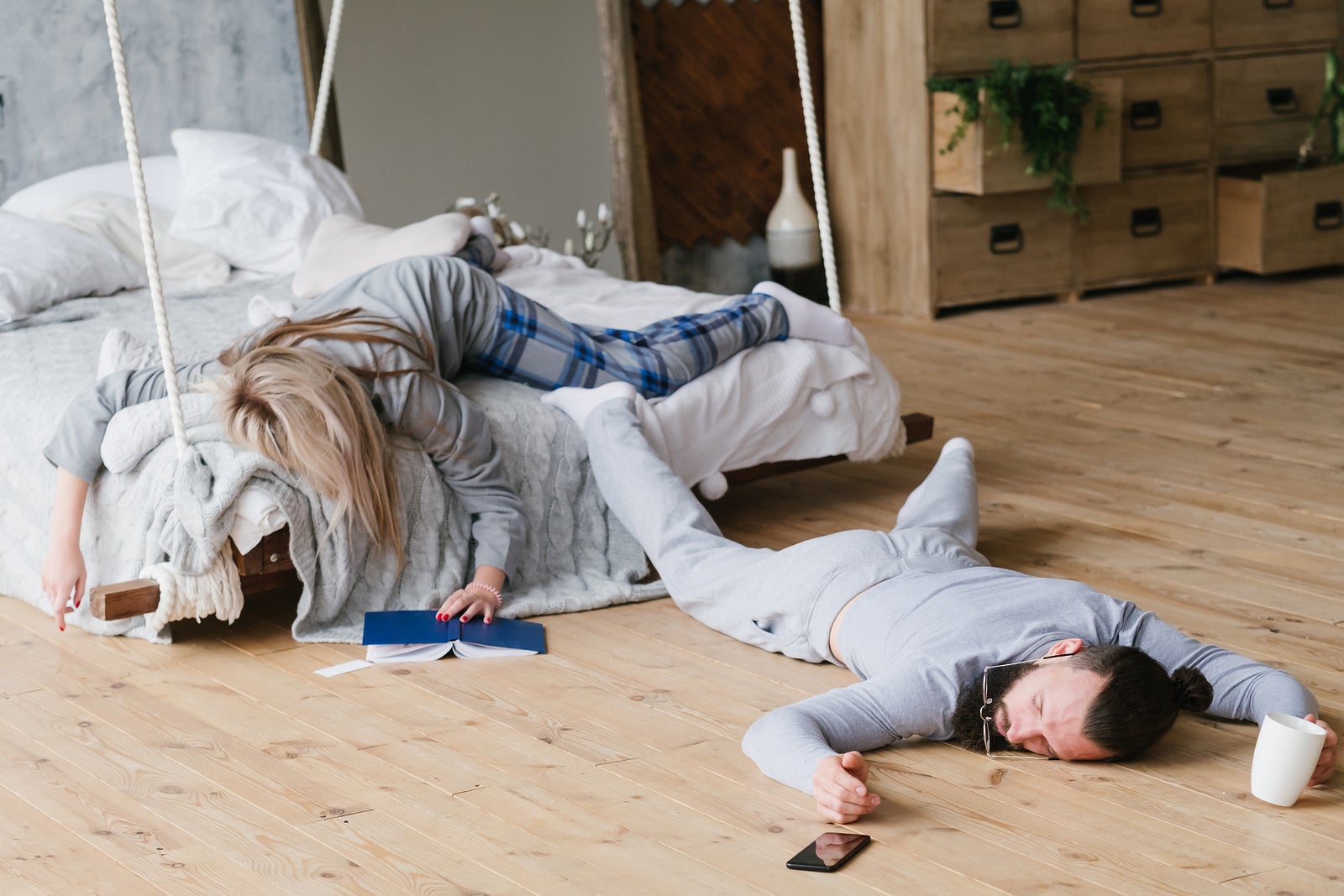The Future of Work-Life Balance? Over Half of the US Supports a 4-Day Week
By: Canva

- New survey finds majority of Americans have experienced symptoms of workaholism
- Just 47% regularly get 8 hours of sleep each day, but 71% work at least 8 hours
With large swathes of the world population working from home in quarantine and isolation among these uncertain times, the line between work and leisure can easily be blurred. A recent survey found that three-quarters of the US (84%) say they would sacrifice time with their family, leisure time, sleep and even their health for work, confirming.
Canva revealed in a survey, interviews with psychologists, professors and self-described ‘workaholics’ and ‘work-life balancers’, the current state of work/life balance in the US and the arguments for and against long working hours and heavy workloads.
The survey, of 1,000 respondents, found that 89% of people had experienced symptoms of workaholism, such as loss of sleep over work, feelings of guilt or anxiousness when not working, and even skipping meals.
| Have you experienced any of the below? | |
| Lost sleep over work stress | 45% |
| Felt guilty or anxious when not working | 38% |
| Felt guilty about leaving work before colleagues | 40% |
| Found it difficult to disengage from work | 38% |
| Skipped meals because of work | 43% |
| Worked over a 40-hour week | 37% |
It also found that while 55% would support a 4-day working week, and 52% support flexible working hours, 17% said they would be in favour of working the ‘996’ schedule – 9am-9pm, 6 days a week.
Long hours like this and pressure from work can cause burnout, which chartered psychologist and work-life balance author Andrew Bridgewater previously suffered from, eventually being admitted to a psychiatric hospital. He said: “We need to feel we can give work our full energy, enthusiasm and passion to work, and without balance, that suffers.
“I burnt out in 2006 and ended up in a psychiatric hospital with psychotic depression with severe burnout which shows what does happen when your mind doesn’t get a chance to relax at all. I was thinking nonstop negatively 24 hours a day 7 days a week. It is different for everybody, as some people thrive on this level of work and the pressure that comes with it.”
Rick Hughes, author of Get a Life: Creating a Successful Work-Life Balance said: “It’s not about finding a 50:50 work-life balance either. We will have priorities based on our stage in life, family and relationships, level of affluence and ultimately what gives us purpose and meaning.”
Indeed, Professor Yehuda Baruch, who wrote an academic paper on the positive impacts of workaholism stressed that balance is different for everyone: “While work-life balance is important, different people find their balance in different ways, and this isn’t the same for everybody. For some people, their balance is the result of more work and less sleep and less leisure.”
It can be argued that levels and hours of work can be down to commitments, unique schedules, and personal passion for what you do, but as the research shows, it is important to ensure this commitment does not negatively impact health, whether that be physical or mental.
1808 Views












